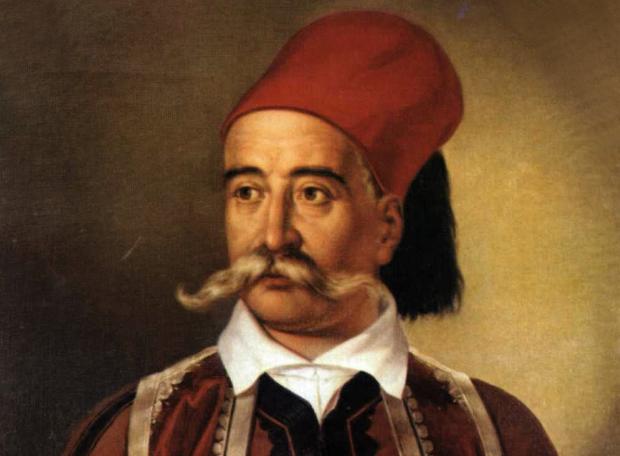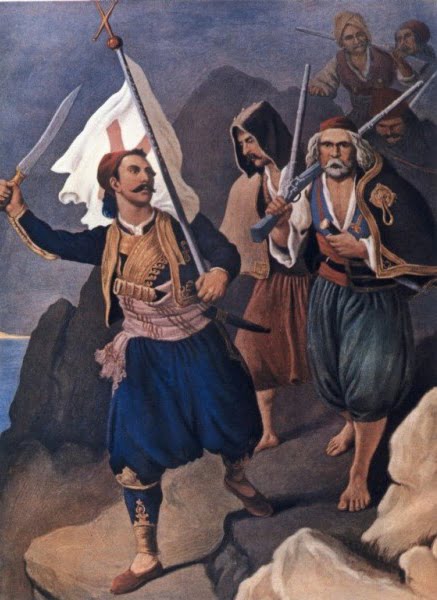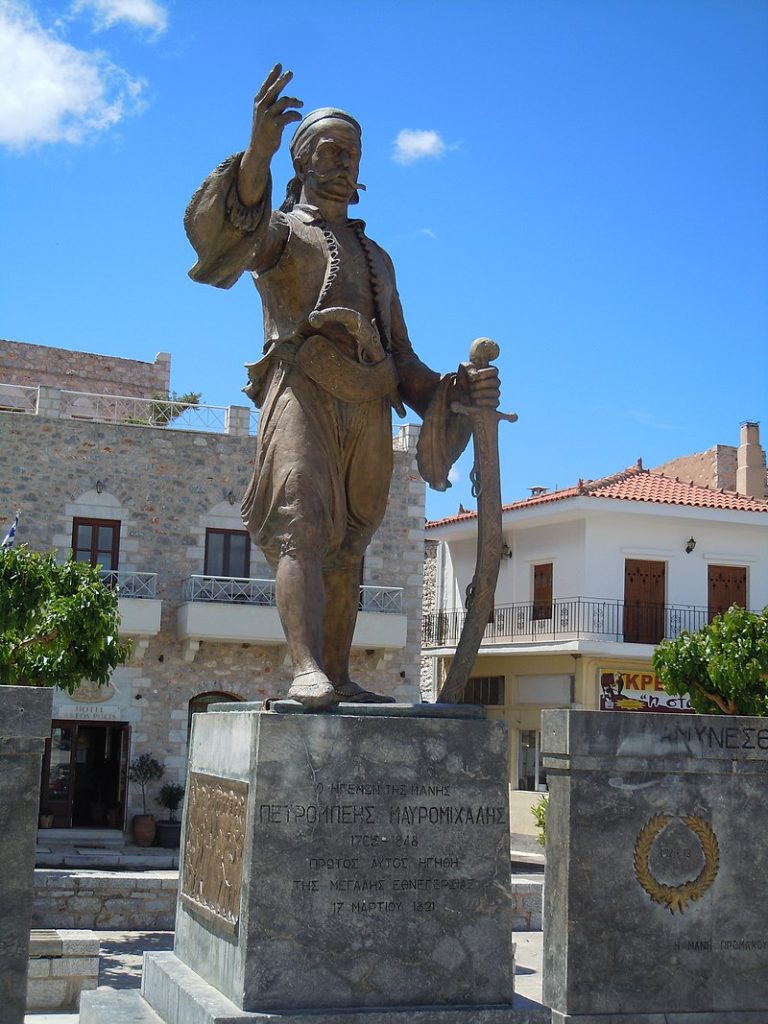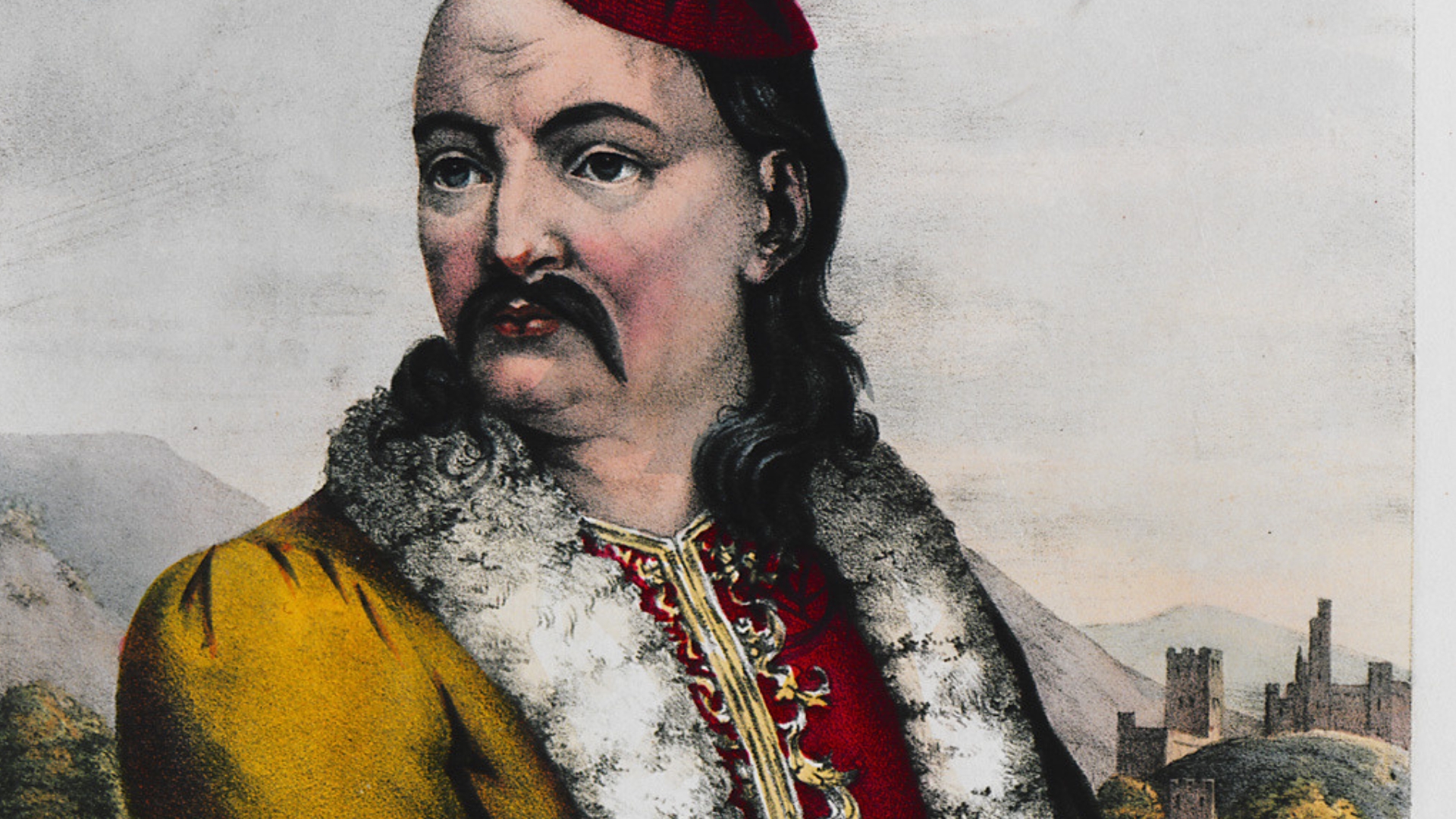Petros Mavromichalis, also known as Petrobey or Petrombeis, was a Greek general, politician and leading figure of Mani and the Peloponnese during the final twenty years of the Ottoman rule, passing away on January 17, 1848.
Mavromichalis was one of the protagonists in the Greek War of Independence, 1821 Struggle, and whose family had a long history of revolts against the Ottoman Empire, which ruled most of what is now Greece.
Mavromichalis was born on August 6, 1773 to parents, Ilias or Pierros Mavromichalis and Aikaterini Koutsogrigorakis, the daughter of a prominent family of Mani.
The protagonist married the daughter of the provost of Kalamata Panagiotis Benaki, Anna Benaki, at a young age. They had six children who are; Ilias Mavromichalis (1795 to 1822), fighter of the ’21, fell fighting in Styra, Evia; Panagiotitsa Mavromichalis, wife of Dimitrios Sahinis; Georgios Mavromichalis (1798 to 1831), fighter of ’21 and murderer of Ioannis Kapodistrias; Anastasios Mavromichalis (1799 to 1870), fighter of the 21st century and politician after the liberation; Ioannis Mavromichalis (1804 to 1825), fighter of the ’21; and Dimitrios Mavromichalis (1809 to 1882), soldier and politician.

In 1800 after the death of his father, Mavromichalis reconciled the members of his family who were divided by oppositions. He would become one of the strongest personalities of Mani because of his intelligence and bravery during the period of the persecution of thieves in the Peloponnese in the 19th Century, where he helped them escape to the Iptane Islands, according to San Simera.
When the French occupied the Ionian Islands in 1807, Mavromichalis and Theodoros Kolokotronis sought out Napoleon’s interest in the organisation of a rebellion for the liberation of the Peloponnese.
Mavromichalis rose to office of the bey of Mani in 1815, due to his involvement in the public affairs of Mani and his involvement in the Revolution to mitigate the oppositions of the powerful families of the region. According to San Simera, he officially assumed the title of Bas-Bogu (Sovereign) on June 22, 1816 with the goal of cessation of civil strife, and to restore peace and the suppression of piracy.
In January 1821, Mavromichalis organised and consulted with prefects of Kalamata which would later lead to the liberation of the city. Mavromichalis along with two thousand armed men captured Kalamata and expelled the Turkish garrison on March 23, liberating the city and forming the “Messinian Senate”
Mavromichalis assembled the Messenian Assembly of Elders and was elected first president and field marshal of the Greek forces.

Mavromichalis became more involved in political affairs and military operations, of which he was elected president of the Assembly of the Calthes in 1821. He would also resume the roles of vice-president of the Parliament after the First National Assembly of Epidaurus (December to January 1822), president of the Second National Assembly of Astros (April 1823), and president of the Parliament and president of the Executive (May to December 1823).
In 1822, Mavromichalis along with an army of 500 Maniates fought against Dramalis to prevent the reinforcement of the Turkish forces that were besieging Messolonghi. Mavromichalis also organised the defence of Mani from the invasion of Ibrahim’s Egyptians in the Peloponnese in 1825. He was appointed a member of the “Administrative Committee of Greece” in April 1826, which led the revolutionary Greece until April 1827.
Mavromichalis played a decisive role in numerous battles such as in the siege of Tripolitsa, the battle of the Lerna Mills together with his brother Constantine Mavromichalis, Demetrios Hypsilantis, John Makriyannis and the philhellenes, and the fall of Argos.
In 1830, Mavromichalis brother, Tzanis or Katsis, rebelled in Tsimova against the prefect of Messinia, Ioannis Genovelis, who sought to destroy Mavromichalians influence in Mani.
Mavromichalis would go under surveillance in Nafplio, where he attempted to escape in February 1831 to return to Mani and impose an order. During the escape, his ship was capsized by a storm in Katakolo and he was arrested and imprisoned in Nafplio as a defendant with the charge of high treason, according to San Simera.
After mediation of the German Philhellenic Irinaios Thiersch (Friedrich Thiersch), Augustinos Kapodistrias ordered the release of Mavromichalis in 1832. Following his release, he set out to mediate between the Kapodistrians and the “Constitutionalists” to prevent a new civil war. Mavromichalis was appointed vice-president of the Council of the Territory during first period of Othon’s reign and after the third Revolution, he would later represent Zygos (Oitlou) in the First National Assembly.

Petros “Petrombeis” Mavromichalis died on January 17 1848 at age 82 in Athens and was buried with the highest honours of a lieutenant. He was lamented as one of the purest and most virtuous heroes of the Greek War of Independence, especially by King Otto, whom he wholeheartedly admired.
Source: San Simera

